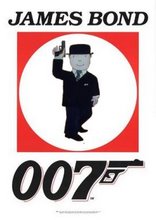It is possible that I have misunderstood and forgotten much of what I read.
Surprisingly, though, calculations seemed to show that the best way of getting people into their seats is to make the process completely random. Humans have a knack of bringing some semblance of order to the chaos they encounter, and if left to their own devices they will get on to the plane within a reasonable timeframe. The same applies to getting off the plane.
I was thinking about this as the plane touched down, and I was curious to see the theory in practice. As soon as the plane slowed, chaos broke loose, with almost every passenger trying to get to their bags or to their friends. People were climbing over seats, nudging people out of the way, even little old ladies with grey hair were clambering around, retrieving their bags. Within minutes, everybody who wanted their bag had it in their hands, and calm returned. I was amazed that such chaos could turn to order so quickly, of its own accord, and with everybody satisfied with the result.
 Off the plane, and follow the rest of the flock up the aisle and along the corridors. I had no idea where I was going, but it seemed a good idea to follow the crowd. “Baaa, baaaa,” I said to myself. Eventually I found myself in the queue for people connecting with other flights. There were five transit desks. One was manned.
Off the plane, and follow the rest of the flock up the aisle and along the corridors. I had no idea where I was going, but it seemed a good idea to follow the crowd. “Baaa, baaaa,” I said to myself. Eventually I found myself in the queue for people connecting with other flights. There were five transit desks. One was manned.Russians have a strange way of queuing. They stand in their place, then get bored, and wander off. Sometimes they walk to the front of the queue to see what’s happening, other times they just wander off. As an Englishman, I find this disregard of the sanctity of queuing quite disconcerting. But at least they were making some effort to queue, although the woman at the one open transit desk seemed to be having some difficulty.
I looked around me. Outside it was dark, as to be expected at 4am, and it was raining. Inside it was dark, and brown. The floor was black, but the over all impression was of brownness. The ceiling was covered in rings of what looked like copper, even the walls seemed brown. There’s something about the former Soviet Empire. Everything is brown. My flat in Germany has the original East German hallway and stairwell. The walls were painted green once upon a time, but the predominant colour is brown. In many other former Communist homes
 I’ve visited in various parts of Europe, the floors tend to be wood painted brown or covered with brown carpets. Often in Communist buildings, especially public ones, the walls are painted with a white-ish colour which goes brownish over time, but even when fresh it had flecks of brown in it. If you see pictures of furnished rooms in 1950’s England, the over all impression is brown, and that’s what the Soviet Union was like. However, the bright colours of the 60’s never reached the Soviets to replace all that brown. Brown is what they knew, brown is what they trusted, so brown is what you got and still get. Even saucepans were often brown.
I’ve visited in various parts of Europe, the floors tend to be wood painted brown or covered with brown carpets. Often in Communist buildings, especially public ones, the walls are painted with a white-ish colour which goes brownish over time, but even when fresh it had flecks of brown in it. If you see pictures of furnished rooms in 1950’s England, the over all impression is brown, and that’s what the Soviet Union was like. However, the bright colours of the 60’s never reached the Soviets to replace all that brown. Brown is what they knew, brown is what they trusted, so brown is what you got and still get. Even saucepans were often brown.There are many theories as to why the Soviet Union collapsed. Some say it was due to the corruption of the ruling elite, others that the cost of the arms race with Nato was just too much. Some people cite the opening of the Hungarian border, others the fall of the Berlin Wall.
Personally, I think it was just that everybody got fed up with being
 brown. There’s a limit to how much brown you can take. One day something just snaps, and people say: “Let’s try a colour change. And while we’re at it, why not a parliamentary democracy too?”
brown. There’s a limit to how much brown you can take. One day something just snaps, and people say: “Let’s try a colour change. And while we’re at it, why not a parliamentary democracy too?”Forget glasnost and perestroika, Gorbachev could have ensured the survival of the Soviet Empire with little more than a few tins of marigold coloured paint.
Moscow Airport had never seen marigold coloured paint. It was probably still banned as an illegal substance of hallucinogenic nature. But the good thing about Moscow Airport, just like Kiev Airport, is the women. Aaah, Russian women. Only Russian (and Ukrainian) female airport staff totter around in skirts that short and that tight. To them, uniform doesn’t mean something frumpy. Half the staff there look like they are waiting to audition for a porn film.
The one lady manning the transit desk wasn’t auditioning for a porn film. She wasn’t in contention for the most efficient employee of the year award either. Or the happiest. The queue hadn’t moved in the whole time I’d been thinking about the brownness of the Soviet Union. Actually, the queue had moved: Russians had ambled up and down the line, just curious to know what was happening, and wandering off to see if other corridors were just as brown. I
 ’m sure I saw one lady slip through an empty transit desk, but nobody else followed. Maybe she was smuggling marigold-coloured paint into the country.
’m sure I saw one lady slip through an empty transit desk, but nobody else followed. Maybe she was smuggling marigold-coloured paint into the country.Then came an announcement in Russian. The queue collapsed, and there was a surge to the transit lady. A couple standing in front of me looked equally confused. They were German, so I asked them what was happening. Computer problems. Nobody was going anywhere, it seemed. Then came a call for passengers to Bishkek, so with my new German friends I squeezed through the mob and was soon past the transit desk.
Walking around Moscow Airport (I've since learned that there are several Moscow Airports. This one was Sheremetyevo), I found the general brownness overwhelming. There appeared to be no waiting room except for first class passengers. A few people had come prepared, bedded down with full-size mattresses and pillows. I wondered how they’d got them on as hand-luggage.
We made a full circuit of the airport. Lots of duty-free shops, all selling the same things, but no waiting room for the great unwashed. I wasn’t feeling great, but I did feel unwashed.
Miraculously, we found some empty seats. The seats at Moscow Airport are designed with three things in mind: to be durable, to be uncomfortable, and to be sat on.
These seats were empty because they failed to meet all three criteria of Soviet Airport chairs: they were made of metal (durable), cold (uncomfortable), and broken (well, 2 out of 3 isn’t bad.)
 We stretched out and tried to get some sleep. The seats sloped at an angle which added to the discomfort. Trying to sleep in an uncomfortable “bed”, cold, with people walking past quite close to me, and lying at a funny angle, I had flashbacks to my caravan in Dartford. These flashbacks were replaced with dreams of people hammering on the seats to repair them.
We stretched out and tried to get some sleep. The seats sloped at an angle which added to the discomfort. Trying to sleep in an uncomfortable “bed”, cold, with people walking past quite close to me, and lying at a funny angle, I had flashbacks to my caravan in Dartford. These flashbacks were replaced with dreams of people hammering on the seats to repair them.I gradually realised the hammering wasn’t a dream, and it wasn’t repair work either. I managed to open my eyes enough to see a Mediterranean-looking boy of 5 or so happily climbing over the seats and banging on them with his fists. Too asleep to play the diplomat, I growled at him. The banging stopped and sleep almost returned. I’d heard it was cold in Moscow, but I thought the airport would be heated. I was wrong, and lay there shivering.
Eventually it was time to catch our plane. I followed my German friends to the queue. They followed instructions, and began to take off their shoes. I followed suit.
A trouser-clad woman who used to throw the javelin in the Soviet Olympic team of 1988 bellowed "Stop!” at me. I stopped, and she angrily ushered me back into the line. A second later: “Ok”, and I was allowed to take my shoes off. I don’t understand official people. Maybe that’s why I struggle to cope with Carrot&Bush.
Shoes off, blue plastic bags on, through the security gate, blue plastic bags off, shoes back on.
Only in the US have I been required to take off my shoes for a flight. I’ve heard the Russian government still considers itself a superpower equal to the US, and so if passengers in the US have to remove their shoes, passengers in Russia must too. Shareholders in companies producing blue plastic bags are quite happy about the whole set-up, but die-hard Communists lament the fact that the bags aren’t brown.
Waiting in the queue to board the plane, I realised that all the obstacles of the previous two weeks were behind me. Once I got on that plane, I would be on the last leg of my journey to Bishkek, with no real idea of what awaited me.

3 comments:
"Personally, I think it was just that everybody got fed up with being brown." Fabulous, Ben!
Ceiling in brown rings...brings me back memories from my childhood :-)
Actually, some can still be found in Croatia these days. Browner than ever. Luckily, we also have some other colours. That's because Tito said his historical 'no' to SSSR back then after WW2, and formed Yugoslavia. I never knew how lucky we were, until now :-)
As for queing, Sheremetyevo is well known for that. When I was flying to Moscow, I had the same experience. But I'm used to that, so I didn't have to write an article about it :-p
Plus, while in plane, before landing to Moscow, I had to fill some form, and one of the questions was "Are you bringing any nuclear devices with you?"
I don't know what would they do if somebody's answer was yes...
Yep, you can thank Tito for saving you from a legacy of brown. What a hero. ;-) Who knows what Crna Gora would have been called if the Soviets had had their way.
I can honestly say I've never brought any nuclear devices onto a plane with me. I wonder what they do if you try? Offer to buy it from you?
Post a Comment